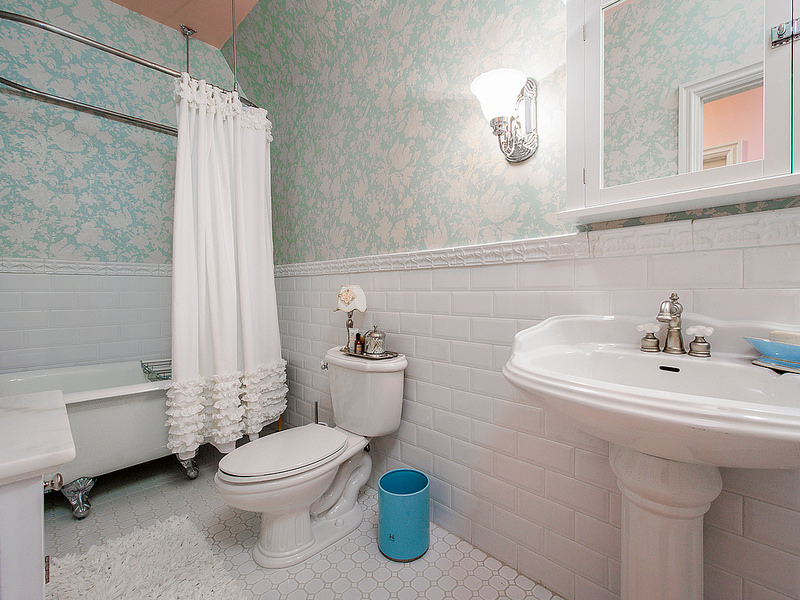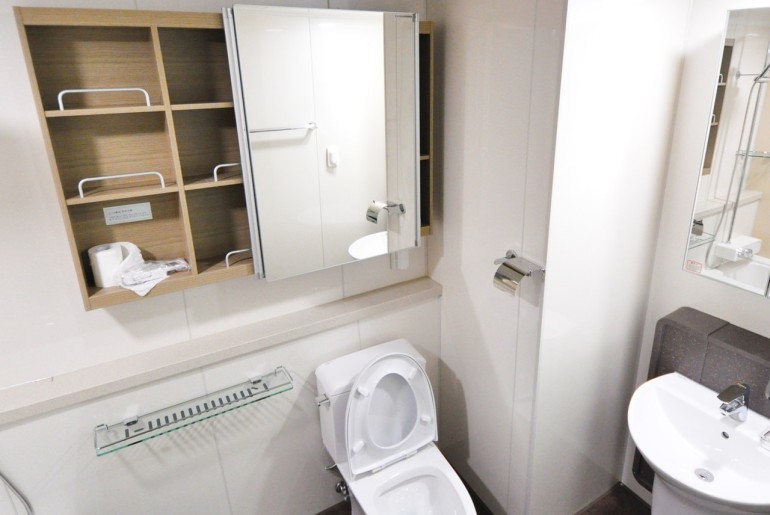Becoming sick is something we all strive to avoid, and making healthy lifestyle tweaks can be a relatively fun challenge. However, when all of your best efforts seem to fail, it is easy to become discouraged. A very common culprit that is often unknowingly overlooked is your environment — and not just the outdoors, where seasonal pollen or air pollution may be the source of your discomfort. Instead, your very home might be making you sick. Fortunately, you can make a few easy adjustments to ensure that your home isn’t a detriment to your health.
Address Leaks and Dampness Image via Flickr by okchomeseller
Image via Flickr by okchomeseller
Keeping the house clean is a simple way to keep your health at its best, but if you keep a clean house and you are still getting sick, here are a couple tips to keep in mind. Bacteria can manifest itself in damp places, heating and cooling systems, bedding, hand towels, and the refrigerator. Keeping bathrooms and the kitchen clean by consistently wiping surfaces is important, but leaks may make your efforts futile.
Leaks can happen in less obvious places, too, like the closet that houses your hot water heater or the plumbing in the corner under your sink. If you think bacteria and mold might be the problem, plumbers can go through the systems and determine whether there are any leaks that should be fixed. Water damage can also be a source of mold growth.
Get Rid of Mold and Bacteria
Since bacteria also live within us, it is easy for bacteria to form colonies in places that we frequent. These bacteria can prompt an allergic reaction or asthma. Sheets, pillowcases, bathroom scrubs, and kitchen hand towels are all comfortable homes for bacteria. Try replacing sponges, washing fabrics, and letting bed sheets dry completely. Finally, your HVAC system, especially an old one, is a very common source of harmful bacteria and mold because the filters tend to collect dust. Finding a professional to help clean or maintain the system may make all the difference.
Reduce Air Toxins and Chemicals
Toxins are more prevalent in our day-to-day lives than we realize, from household cleaning products to air fresheners, hygiene products, outdoor smoke and smells, sick family members, and the very walls that create your house’s structure.
Taking a closer look at what is floating around you could make or break your health. Although it is nice to have your house smelling fresh, opt for non-toxic or organic candles rather than air fresheners, which might be releasing chemicals into the air along with that fresh-smelling scent. Opening windows may also be a good alternative if outdoor allergens are not an issue. If your home is older, consider whether asbestos, a type of insulation that may be causing more serious health problems, might be present.
Finally, cleaning agents are a simple fix that may make the biggest difference. What you use to clean your surfaces can impact your food and water. Avoid chemical-laden products and choose natural and plant-based ones instead. Not only are these better for the environment, but they are also better for your health.
Sometimes doing a deep clean just doesn’t cut it. When this happens, a systemic approach to how you are cleaning and what you are cleaning (or not cleaning) may make all the difference.










Comments are closed.